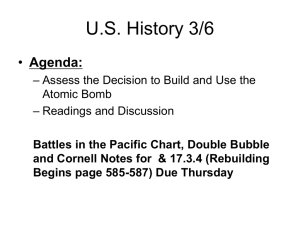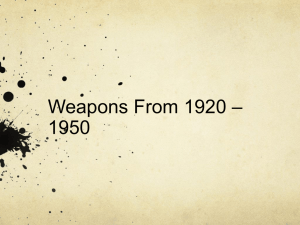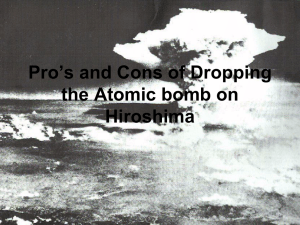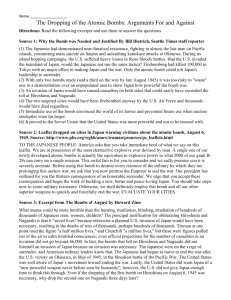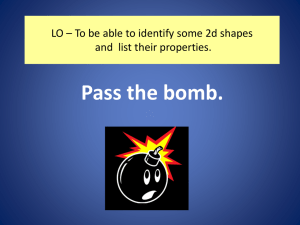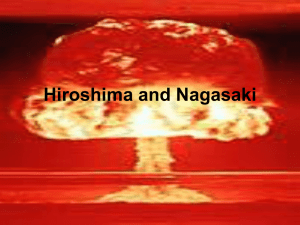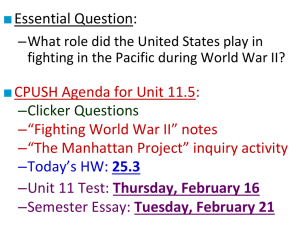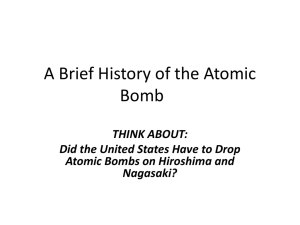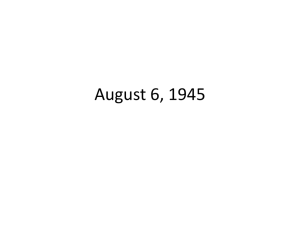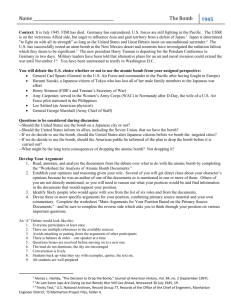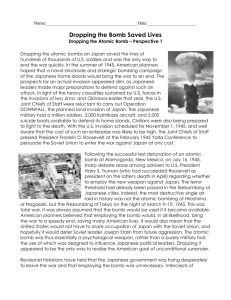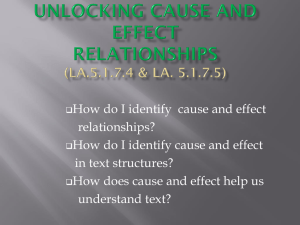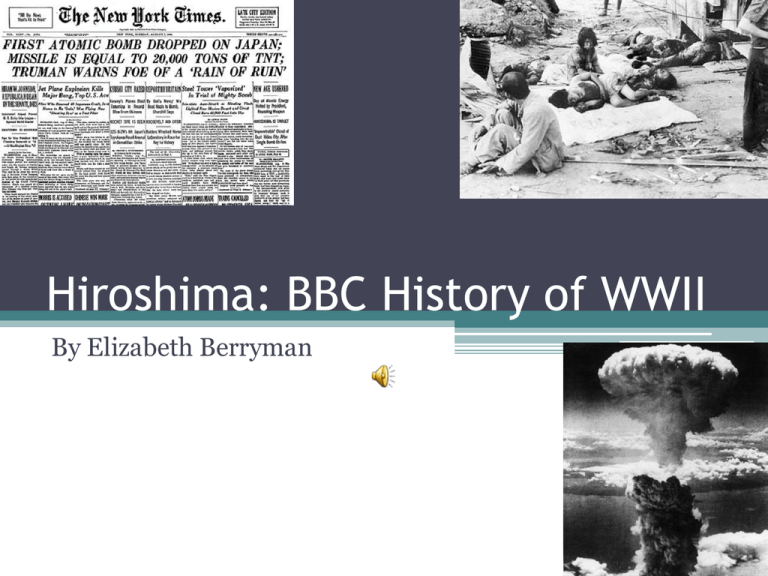
Hiroshima: BBC History of WWII
By Elizabeth Berryman
Response/Reaction
• I chose to watch this World War II documentary because
I have always been interested in the subject and
relationship between the US and Japan.
• While watching it, it made me feel bad for the Japanese
especially all the innocent people that were affected.
• The US killed thousands of innocent people.
• Questions that arose while I was watching it were:
▫ Why didn’t we drop the bomb on a military base instead of
in the middle of a populous town?
▫ Was dropping the bomb necessary? Could we have done
without it?
Summary
• This World War II documentary explains the
history and planning of the US dropping the first
atomic bomb on Hiroshima.
• The narrator describes the reasoning behind the
dropping of the bomb and the evident
consequences of this tragic event for the
Japanese.
Timeline
• August 6, 1945 - First atomic bomb dropped, on
Hiroshima, Japan.
• August 8, 1945 - Soviets declare war on Japan
and invade Manchuria.
• August 9, 1945 – Second atomic bomb dropped
on Nagasaki, Japan.
• August 14, 1945 – Japanese agree to surrender.
• September 2, 1945 –Japanese sign the surrender
agreement (V-J Day, Victory over Japan).
Dropping the bomb
• The atomic bomb was dropped from an airplane
and took 45 seconds to trigger the mechanisms
inside the bomb.
o Thought it was a dud.
• When hit the ground, a fire ball 300 meters
wide was formed.
• 4000 degrees Celsius.
• Formed mushroom cloud.
Aftermath
• After the bomb was dropped, many were thirsty.
• Huge cloud of ash and smoke lingered over
Hiroshima.
• Many suffered from severe burns.
• Finally when it began to rain, the rain was black,
filled with ashes- highly radioactive.
• At that time they didn’t know this and drank the
toxic rain water.
Radioactive poisoning
•
•
•
•
•
•
Hair falls out
Bleed internally
Skin begins to rot
Long term damage includes
: mutation of sex cells
:unable to have children but if can, children may
have mutations
Facts about the Bomb
• Bomb dropped on August 6, 1945.
• The flash from the explosion was seen from over 10 miles
away.
• A soldier, 10,000 feet away was knocked to the ground
because of the force.
• Another soldier 5 miles away was temporarily blinded.
• The aircraft carrying the bomb, the Enola Gay, was named
after the pilots mother.
• Today remnants of a vaporized man still exist on the stairs
The Atomic Bomb
• Original purpose: to use against Nazi Germany
• First atomic test was in New Mexico.
• Exploded with the force of 67 million sticks of
dynamite.
• Japanese knew an attack would be coming but
didn’t know where.
• Suicide bombers prepared themselves mentally
and physically.
▫ “A true soldier rather die than surrender”
America’s Reasoning
• Gave the Japanese several times to surrender
however they were too honorable to surrender in
time of war.
• Americans believe dropping the bomb saved
more lives from being lost than if the war had
continued.
• Also, Americans did not know exactly how much
radiation would be given off and how badly the
aftermath was going to be.
Bibliography
• http://www.historyplace.com/worldwar2/timeli
ne/ww2time.htm
• http://www.youtube.com/watch?v=xoqIFezih9
w
• http://history1900s.about.com/od/worldwarii/a
/hiroshima.htm

